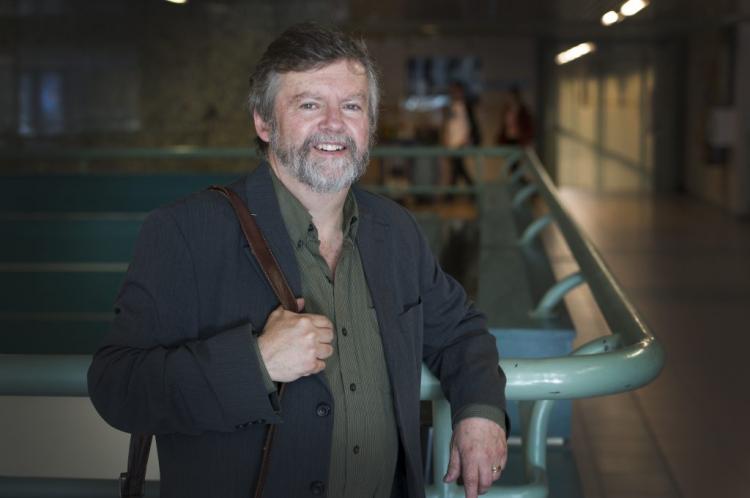By Kelly Foss
As mysterious as the moon, and in many ways less sampled, the ocean holds many secrets.
Memorial University, recognized globally as a leader in ocean research, is well-positioned to crack those secrets, and has spent the last decade doing just that.
In fact, more than 40 per cent of Memorial's research relates to oceans - and in the Faculty of Science that number reaches nearly 70 per cent.
In the last 10 years, Memorial has completed, begun or reinvested in multiple major ocean research partnerships. Dr. Paul Snelgrove, a member of the departments of Ocean Sciences and Biology, has been at the forefront of some of the university's biggest ocean projects.

Dr. Paul Snelgrove Photo: Chris Hammond
Census of Marine Life
The $650 million worldwide Census of Marine Life program wrapped up in 2010 after 10 years of research to improve our understanding of the diversity, distribution and abundance of life in the global ocean.
The project had one goal: To census all the life in the ocean.
In one of the largest scientific collaborations ever conducted, a global network of more than 2,700 census scientists from more than 80 countries spent approximately 9,000 days at sea on more than 540 expeditions, plus countless days in laboratories and archives.
Over the decade, more than 2,600 academic papers were published - one, on average - every 1.5 days.
Dr. Snelgrove led the assembly and report of census results and the maps, books, databases, videos and photo galleries that summarized how this decade of discovery revealed an unprecedented picture of the diversity, distribution and abundance of marine life in in our global ocean.
Canadian Healthy Oceans Network (CHONe)
In a program linked to the Census of Marine Life, Dr. Snelgrove also led the Canadian Healthy Oceans Network (CHONe), with Memorial University as the lead institution, from 2008-14.
The project focused on biodiversity discovery and was funded by $5 million from the Natural Sciences and Engineering Research Council of Canada (NSERC) and $1 million in ship time from Fisheries and Oceans Canada (DFO).
In 2016 Memorial received an additional $5 million from NSERC and another $1 million in ship time, research support and meeting resources, plus access to specialized equipment and laboratory space from DFO for the second phase of the Canadian Healthy Oceans Network.
The port and city of Sept-Îles, through its research arm, INREST, also contributed $200,000.
The CHONe II Strategic Research Program is developing new conservation strategies for Canada's changing oceans, by partnering with Canadian university researchers, government scientists and industry.
It brings together 39 researchers from 11 universities, a community college and multiple federal research labs from across Canada and is housed at Memorial University. Dr. Snelgrove is lead researcher and network director.
The goal is to enhance ocean sustainability and to understand how different activities change marine living resources. The project is also helping Canada meet national and international commitments on sustainable oceans.
Ocean Frontier Institute
In 2016 the federal government announced nearly $100 million in funding over seven years for the creation of a the Ocean Frontier Institute.
This historic partnership between Memorial University, Dalhousie University and the University of Prince Edward Island focuses on challenges and solutions for safe and sustainable ocean development.
The three universities are working with many of the top ocean research institutes in the world from both sides of the North Atlantic to explore the vast potential of the world's ocean. Partners also include the Government of Canada's federal laboratories (Fisheries and Oceans Canada, National Research Council and others), the Royal Canadian Navy, the National Film Board of Canada and national and international industry.
Through this unique partnership with its research partners, Memorial is leading breakthroughs in five key areas: sustainable fisheries; sustainable aquaculture; sustainable ecosystems; marine safety; and ocean data and technology.
The federal funding also allows Memorial to leverage millions more from industry, government, other partners and the university, and to attract and retain world-leading research talent to Canada, while advancing the region's position as a centre of ocean-related teaching and learning.
Importantly, OFI has revitalized ocean research at Memorial through its links to the hiring of 12 Canada Research Chairs, two other research chairs and another six faculty members engaged in ocean research, who will collectively lead Memorial's future efforts towards a safe and sustainable ocean.
Dr. Snelgrove is the OFI's associate scientific director.










